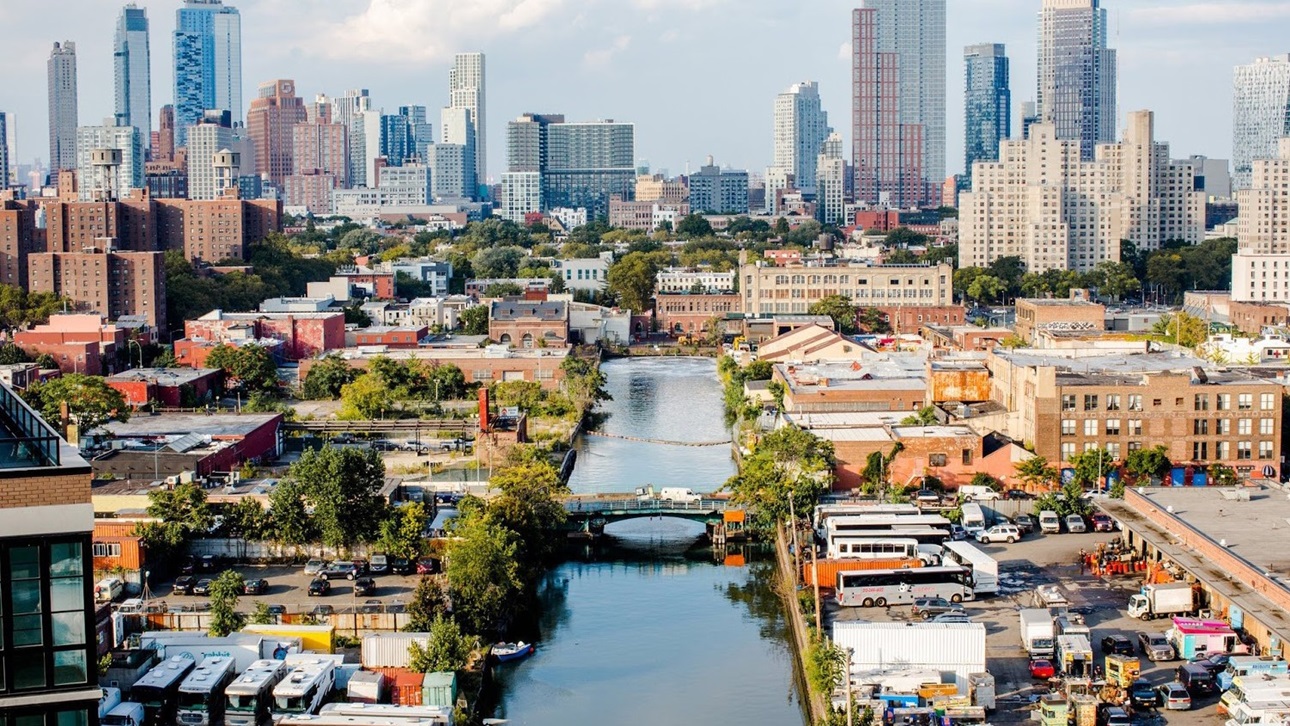城市设计气候研讨会:布鲁克林 Gowanus

从气候科学到气候行动
本报告重点关注创新的土地利用和气候适应战略如何通过减少极端高温的负面影响以及更好地管理布鲁克林戈瓦努斯的雨水引发的洪水和海平面上升来提高生活质量。
本报告基于由 ULI 纽约领导的为期 6 个月的城市设计气候研讨会,与纽约理工学院(NYIT)、城市气候变化研究网络(UCCRN)合作–全球气候专家联盟和 Gowanus 邻里正义联盟(GNCJ)–一个以社区为基础的倡导团体。在项目合作伙伴的指导下,NYIT 的城市设计毕业生学生评估了 Gowanus 社区的 2019 年热图,并可视化了到 2050 年的预期温度“照常营业”和最佳实践“耐热”土地利用和开发场景。
与 ULI TAP 流程(最终报告反映多学科 ULI 成员专家的建议)不同,Gowanus UDCW 由纽约理工学院建筑、城市和区域设计硕士学位课程的研究生城市设计计划、设计和执行’s 建筑与设计学院,在教师的监督下并与当地 ULI 成员工作组协调。本报告中提出的缓解和干预策略,以及将气候模型纳入重新分区提案的总体方法,可为 ULI 成员从业者、政策制定者和社区领导人解决气候问题提供新的创新想法的来源并促进公共卫生和复原力。
本报告的完成得益于项目合作伙伴的贡献以及纽约社区信托基金的慷慨支持。
报告摘要:本报告重点关注创新的土地利用和气候适应战略如何通过减少极端高温的负面影响以及更好地管理布鲁克林戈瓦努斯的雨水引发的洪水和海平面上升来提高生活质量。
本报告基于由 ULI 纽约领导的为期 6 个月的城市设计气候研讨会,与纽约理工学院(NYIT)、城市气候变化研究网络(UCCRN)合作–全球气候专家联盟和 Gowanus 邻里正义联盟(GNCJ)–一个以社区为基础的倡导团体。在项目合作伙伴的指导下,NYIT 的城市设计毕业生学生评估了 Gowanus 社区的 2019 年热图,并可视化了到 2050 年的预期温度“照常营业”和最佳实践“耐热”土地利用和开发场景。
与 ULI TAP 流程(最终报告反映多学科 ULI 成员专家的建议)不同,Gowanus UDCW 由纽约理工学院建筑、城市和区域设计硕士学位课程的研究生城市设计计划、设计和执行’s 建筑与设计学院,在教师的监督下并与当地 ULI 成员工作组协调。本报告中提出的缓解和干预策略,以及将气候模型纳入重新分区提案的总体方法,可为 ULI 成员从业者、政策制定者和社区领导人解决气候问题提供新的创新想法的来源并促进公共卫生和复原力。
本报告的完成得益于项目合作伙伴的贡献以及纽约社区信托基金的慷慨支持。


